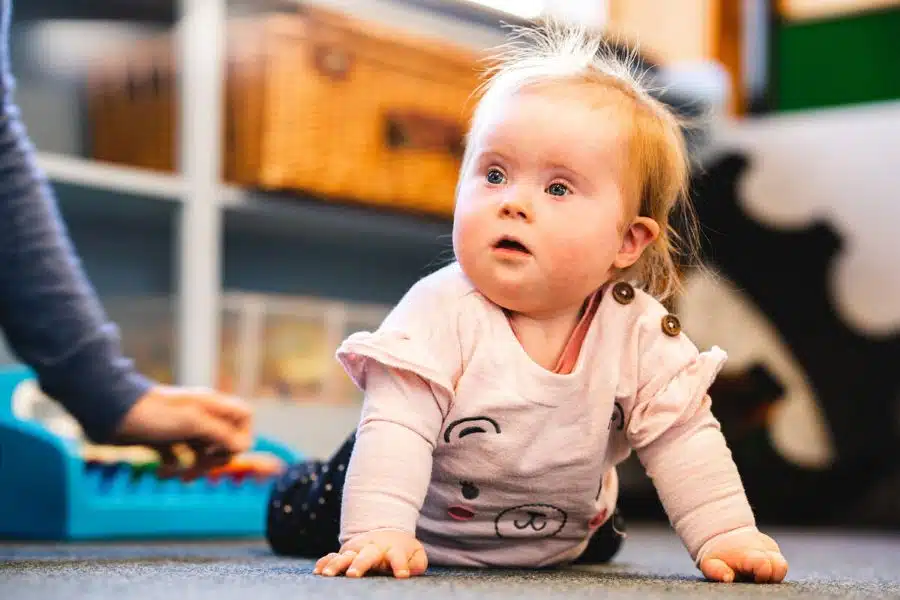Is Your Child Struggling with Developmental Milestones?
As a parent, you might wonder, Is my child developing on track? If they struggle with speech, motor skills, or social interaction, early intervention can change their future. Pediatric therapy provides children with the tools to gain confidence, improve communication, and develop independence—essential skills that will benefit them for life.
If you’re concerned about speech delays, motor coordination, or sensory challenges, this guide will help you recognize when therapy might be beneficial and how to take the next steps.
What Is Early Intervention and Why Is It So Important?
Early intervention refers to therapy services designed to support children under five who show signs of developmental delays in areas such as:
- Speech and language development
- Fine and gross motor coordination
- Social and emotional regulation
- Sensory processing
- Cognitive skills
Experts agree that earlier therapy leads to stronger outcomes. The brain is highly adaptable in early childhood, meaning therapy can strengthen essential pathways, making it easier for kids to develop lasting skills.
Why Early Therapy Works
- Maximizes Brain Growth: The first five years are critical for brain development. Therapy helps reinforce essential connections that shape future learning.
- Prepares for School Success: Addressing challenges before they impact classroom learning leads to better academic performance and social development.
- Encourages Daily Independence: Therapy fosters confidence, making daily activities and social interactions easier.
Important Note:
Intervention at any stage is beneficial to children, teens, and kids of all ages. There is no right age to find out that your child needs support.
5 Signs Your Child May Need Pediatric Therapy
It’s natural to have questions about your child’s development. Here are five clear signs that may indicate your child could benefit from pediatric therapy.
1. Speech & Language Delays
- Not babbling by 6 months
- No first words by 12-15 months
- Difficulty following instructions by 18 months
- Struggles forming two-word phrases by 2 years
Speech therapy helps children develop language skills, improve pronunciation, and engage in conversations confidently.
2. Difficulty with Motor Skills
- Trouble grasping toys or utensils
- Clumsy movements, difficulty with coordination
- Delayed crawling, walking, or running
Occupational and physical therapy help children build strength, balance, and fine motor control, making everyday tasks easier.
3. Sensory Processing Issues
- Overreacts or underreacts to sounds, lights, or textures
- Struggles with food textures or clothing materials
- Seeks excessive movement (spinning, jumping, running)
Children with sensory challenges benefit from therapy that helps them regulate responses and interact comfortably with their environment.
4. Social and Emotional Differences
- Avoids eye contact or social interaction
- Struggles with transitions and changes in routine
- Difficulty expressing emotions appropriately
Early therapy helps children develop social skills, manage emotions, and engage meaningfully with others.
5. Trouble with Daily Activities
- Struggles with dressing, brushing teeth, or using utensils
- Difficulty focusing or following multi-step tasks
- Frustration or meltdowns when trying new things
Therapists work with children to develop problem-solving skills, improve focus, and build confidence in self-care activities.
Do you think your child might need support?
How Pediatric Therapy Can Help
Speech Therapy
- Develops language comprehension and expression to help children communicate effectively.
- Improves articulation, pronunciation, and fluency for clearer speech.
- Strengthens social interaction skills and builds confidence in verbal communication.
Occupational Therapy (OT)
- Enhances fine motor skills needed for tasks like writing, cutting, and grasping objects.
- Supports sensory processing to help children manage sensitivities to textures, sounds, and movements.
- Builds independence in daily activities like dressing, eating, and personal hygiene.
Physical Therapy (PT)
- Improves strength, balance, and coordination to support mobility and physical function.
- Helps children achieve key movement milestones like crawling, standing, and walking.
- Encourages better posture and muscle control for greater physical stability.
Nutritional Therapy
- Identifies and addresses dietary deficiencies that may impact growth, energy, and brain function.
- Supports children with picky eating, digestion issues, and food intolerances.
- Promotes healthy eating habits to optimize overall well-being and development.
Feeding Therapy
- Helps children who struggle with chewing, swallowing, or oral sensitivities.
- Improves food acceptance and mealtime behaviors in children with sensory or developmental challenges.
- Teaches safe and effective eating strategies for children with feeding difficulties or aversions.
Taking the First Step: How to Get Started
1. Observe & Take Notes
Keep track of your child’s behaviors, struggles, and missed milestones. Journaling what you notice can be helpful when speaking with specialists.
2. Talk to Your Pediatrician
If you have concerns, schedule a consultation with your pediatrician. They can refer you to a specialist if needed.
3. Schedule a Professional Evaluation
At Uplift Therapy Center, we offer comprehensive evaluations that help identify your child’s strengths and areas needing support.
4. Begin Therapy & Support
With a personalized plan, therapy can help your child make meaningful progress through structured play and learning activities.
Parent Success Stories
🌟 “Speech therapy gave my son the words to express himself. Now, he talks nonstop and loves engaging with others!” — Amy, Pasadena
🌟 “Occupational therapy helped my daughter with sensory issues. Now she enjoys mealtime without stress!” — Sarah, Glendale
🌟 “We waited, thinking our son would ‘catch up.’ Once we started PT, he gained strength and confidence in weeks.” — James, Burbank
FAQ About Pediatric Therapy
1. How do I know if my child’s speech delay is serious?
If your child has trouble forming words, responding, or following simple instructions, an evaluation is recommended.
2. Can children ‘grow out’ of developmental delays?
Some do, but early intervention makes progress easier and faster.
3. What age is best for early intervention?
Therapy is most effective before age 5, but children of any age can benefit.
4. Will therapy make my child dependent on help?
No, therapy is designed to build confidence and independence in daily tasks.
Trust Your Instincts & Take Action
If you’re noticing speech delays, sensory struggles, or coordination challenges, don’t wait. Early support leads to lifelong benefits.
Contact Uplift Therapy Center today to schedule an evaluation and take the first step toward your child’s success!




